Complete Guide to Working at Camp in America: Everything You Need to Know
Working at camp in America is one of the best things I ever did. I did it for two years and without a doubt it changed my life, and its course, for the better. Here’s what you need to know if you want to work at camp in America too.
In 2005 I spent 12 weeks working at a summer camp in New York. French Woods Festival of the Performing Arts was tough going – I went through every emotion imaginable during the summer, and it was definitely a life changing experience.
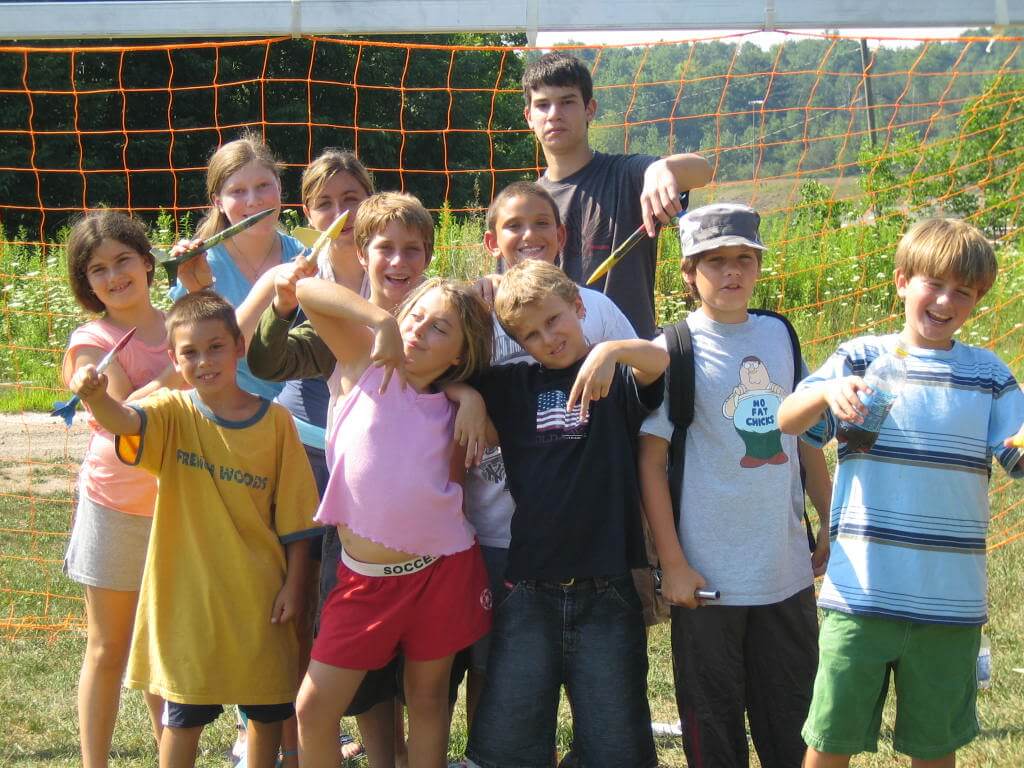
- I made some of the best friends I’ve ever had.
- It inspired me to try travel.
- If I’m ever feeling a bit rubbish I have a bank of thousands of funny camp memories to cheer me up.
- The work changed me for the better.
- I proved to myself I was capable of a lot more in life.
Working at camp in America had its ups and downs and highs and lows. I want to give you the full guide to what working in summer camp is like, to encourage you to do the same.
What is being a camp counselor like?
Working as a camp counselor is pretty much 24/7. You’re never really off duty while you’re there. I had to deal with everything from kids pooing on bunk floors, to rogue thunderstorms terrifying the little ones to homesickness and very sadly the death of two co counselors while we were at camp.
Working at summer camp day to day
I had to wake up at 7am and get 12, 13-year-old girls up, washed and at breakfast for 8am – however hard that sounds, it was harder. Then I had to teach five lessons a day of visual arts and radio, with an hour’s break and a lunch hour thrown in somewhere, and then get the kids to dinner and join in or help host the evening activity. After that it was time for a dance up at the canteen and I would DJ while the kids scoffed pizza and ice cream before being hustled off to bed by their counselor.
Then, this was where the fun really began: trying to get the kids to sleep.
The kids changed every three weeks: the phrase ‘you win some, you lose some’ definitely comes to mind here. For the first three weeks and the last weeks the kids were angels, it was everyone in between that was problematic. A few hours later they’d be asleep, then I could go to sleep ready to start it all again the next day.
Working at summer camp days and nights off
I got two days off every three weeks and could go shopping in the nearest city Binghamton, or the nearest town Hancock. I also got to go to Niagara Falls one day, Ithaca, and New York twice too. The kids got two days off too where we would take them to the cinema or hold fun days at camp like Carnival or Do Nothing Day, which they loved.
On nights off we’d go to the local bar and get steaming drunk before rolling into bed as the sun came up. Towards the end of camp when everyone was running out of money we sat around the lake drinking beer and eating crisps – they were always the best nights, chilling out under the stars with no cares. There were a few occasions where we went to the local waterfall Skinner’s Falls and camped out there for the night with a bonfire.
Getting paid to work at summer camp
The pay wasn’t great. I think I ended up with about $1200 for the summer, but I got free accommodation and loads of free food for the 12 weeks. It costs about £800 all in all to do it and there are loads of companies offering great deals – AmeriCamp looks pretty cool, but I went with CCUSA.
It’s also worth keeping your final payslips safe. Many international counselors are eligible to claim back income tax after they leave the US, and securing a fast tax refund can be a nice bonus to top up your travel funds for the next adventure.
Working as a camp counselor is definitely one of the most rewarding things I’ve ever done. I think about it a lot and would recommend anyone to do it.
Why you should work as a camp counselor
1. Summer camp is a crazy and new experience. The whole thing from start to finish is a surreal world that is hard to describe and understand, unless you’ve been there. Working with the kids and other counselors every day, and learning about them is as much of a culture shock as anything else.
2. You’ll learn new skills you can use in the future, and it looks great on your CV. No matter what industry you’re going into afterwards you will gather transferable skills at summer camp that will serve you well. Working alongside people so closely, time management, interpersonal skills – they’re all lifelong skills.
3. You get to travel the USA afterwards. Many counselors stay at co counselors houses, or even sometimes the camper’s. You’re guaranteed to make lifelong friends who are only too pleased to take you in at home. If that’s not your thing (it wasn’t mine!) arranging car rental in the USA is relatively easy and you could gather a few friends together and go on a road trip. Working at camp is a cheap way to explore the USA, as you’ll often get to go on paid for day trips with camp too.
4. You get paid to be a kid again. Not very much, granted, but you do get paid to make stuff, play in the pool, go horseriding, make films, play on the circus equipment – it’s awesome. You get to do things you’ve never done before, these summer camps are huge and have everything possible to keep 5-18 year olds happy. The best counselors know how to mix their childish side with some authority.
5. You get to be outside all day. No more office or crappy bar work for you – you’re outside from dawn till dusk and away from all communication. You could look at summer camp as a ‘digital detox’ or you could just look at it as a brilliant summer away from a desk – either way you’d be right.
6. Get free accommodation, food and drink for 9-12 weeks. One of the main reasons I went to work at summer camp was because I actually couldn’t afford to do anything else. As soon as you get to camp all your accommodation is sorted and you’re guaranteed three meals a day, even on your days off. It’s a great way to live a different life for a few weeks at no expense to you. You don’t have to spend a penny if you don’t want to.
7. The people you meet. You’re sure to meet some characters, that’s guaranteed. Whether they’re your fellow counselors, your superiors or the kids, you’ll meet some great people at camp. Some of the people I met are now my very best of friends, and the others, I had a great time while it lasted. You never know who you’ll meet along the way; I met a guy who was a magazine publisher’s son and I managed to get an internship in New York out of it. I also met David Hasselhoff’s kids, and the big man himself on parents day.
8. You get to use your talents. How often in life are you truly appreciated for a creative necklace you made, or a ceramics pot that blows all the other ceramics pots out the water, or even your mad magic skills? At camp you will be loved and adored for all this and more. You get to share your knowledge and great sense of humour with some brilliant children and hopefully somehow, have some sort of positive effect on their lives.
What other reason do you need?
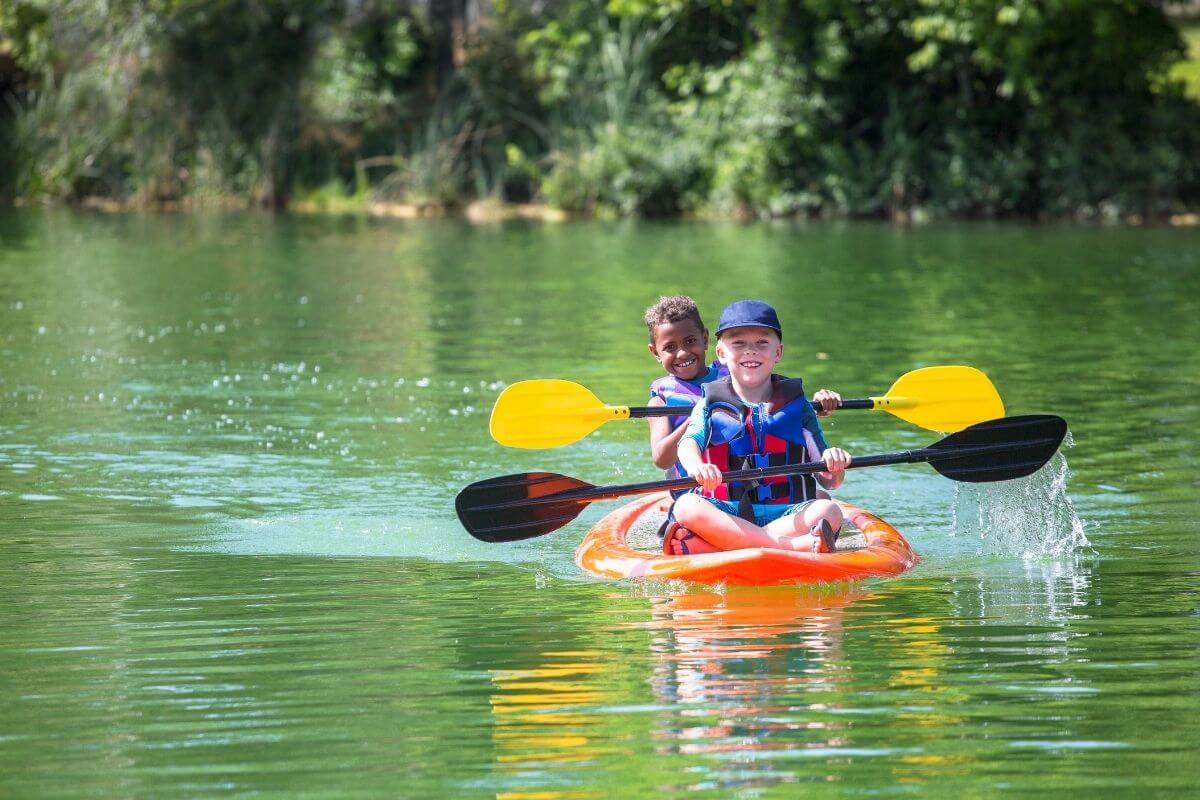
10 steps to being a camp counselor
To apply to work at summer camp in America…
- You must be 18 by 1 June of the year you want to go.
- You should be available to depart between 1 May and 20 June.
- You have to be available for a minimum of nine weeks until 14 August at the earliest.
- You must be fluent in English.
- Decide on whether you’d like to apply through an agency, which is usually best if you’re a first-timer from overseas. Or whether you’d like to apply direct to the camp in America of your choice. The main ones are CCUSA, Camp Leaders, AmeriCamp or Camp America.
2. Next decide on which talent you’d like to use at camp. Camp counselors can be lifeguards, art teachers, cyclists, dancers, circus gymnasts, skateboarders, musicians, actors, magicians, golfers, martial artists… as long as you’re good with children anything you’re good at will make you a good camp counselor. Even if you don’t have a specific talent, many camps allow you to be a general counselor.
3. All you have to do next is apply! If you’ve chosen to go through an agency, you just need to find out their deadline (usually in March) and sign up via their websites. If you want to find your own camp then check out the thousands of ACA accredited camps throughout the US and make your decision. Applications will require some thought, and usually some references so have your referees on standby.
4. You’ll be invited to a camp counselor interview with your chosen agency. These are nothing to be scared of – I used to be a CCUSA interviewer and all I was checking for was that you were mostly normal and that you knew what you were letting yourself in for.
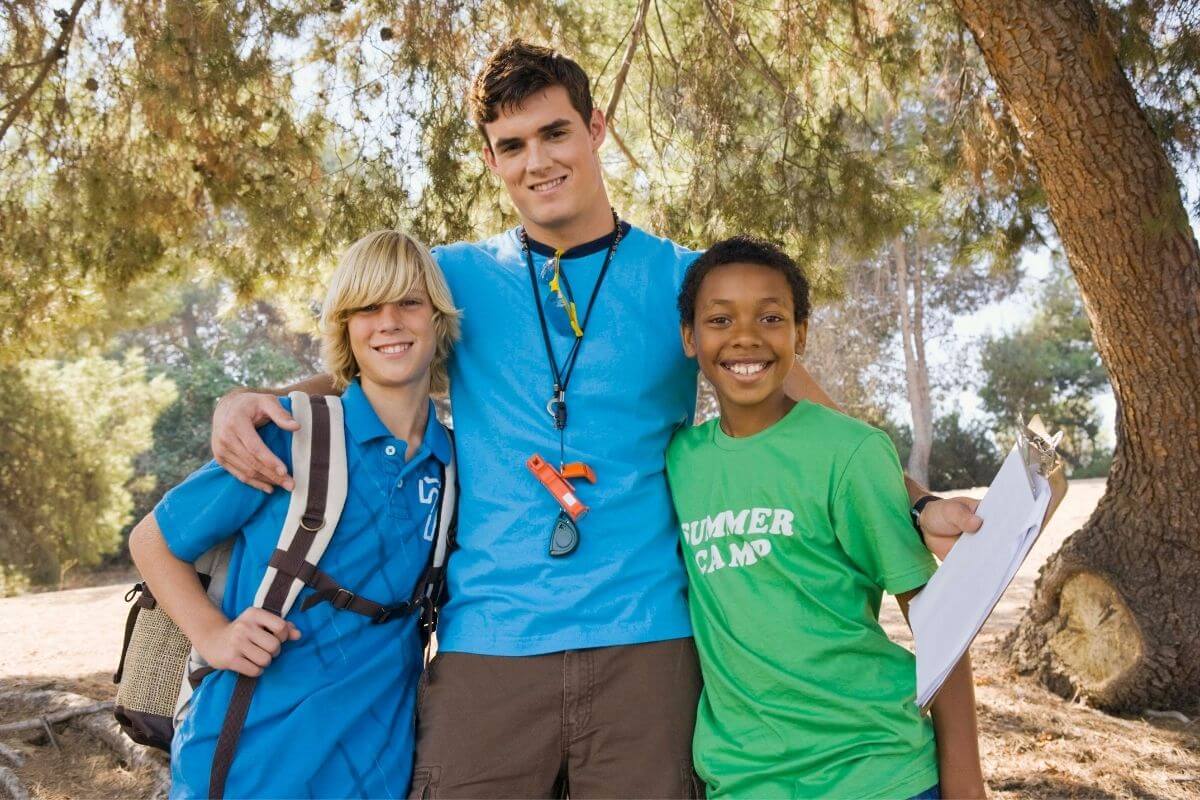
5. Once you’re provisionally accepted to camp you’ll need to get a CRB check to work as a camp counselor in America.
6. Camp Directors Recruitment Fairs run every January in Australia and England. This is when a lot of job roles are fulfilled. These are a great opportunity for you to meet the Camp Directors and learn a bit more about what camp is about. You can also see for yourself videos and other camp employees. It’s also a great chance to speak to past camp counselors too.
7. If you’ve applied after the Camp Directors Fair, don’t worry. Your agency will still have thousands of vacancies left to fill. From your application and the interviewer’s notes they will know enough about you to make sure you get placed at a camp in America that you’ll enjoy.
8. Once you’ve been placed at a US summer camp it’s time to get prepared! Read books about being a camp counselor so you’re ready. You’ll be in for a tough summer but a brilliant one.
9. You’ll also have another orientation meeting that you’ll be required to attend in your own country. Here you will find out more about the camp you’re going to and maybe also get the chance to meet other camp counselors who’ll be at the same camp as you, or at least get their email addresses so you can add them on Facebook. You’ll also find out more about your flight details and get a kit list too.
10. Finally it’s time to go! Make sure you get yourself to the airport in plenty of time. Hopefully you’ve managed to arrange to meet someone from your camp to sit with on the journey, but if not, try and work out if anyone is going to camp in the airport. If you can’t now’s the time to enjoy the peace and quiet. Things are about to get very, very busy.
Best personalities for camp counselors
To be a camp counselor you should be…
Fun: whether you’re working in the computer room or the speedboat, you’re there to entertain the kids. The best and most popular counselors will be able to think up games and make the campers laugh at the drop of a hat.
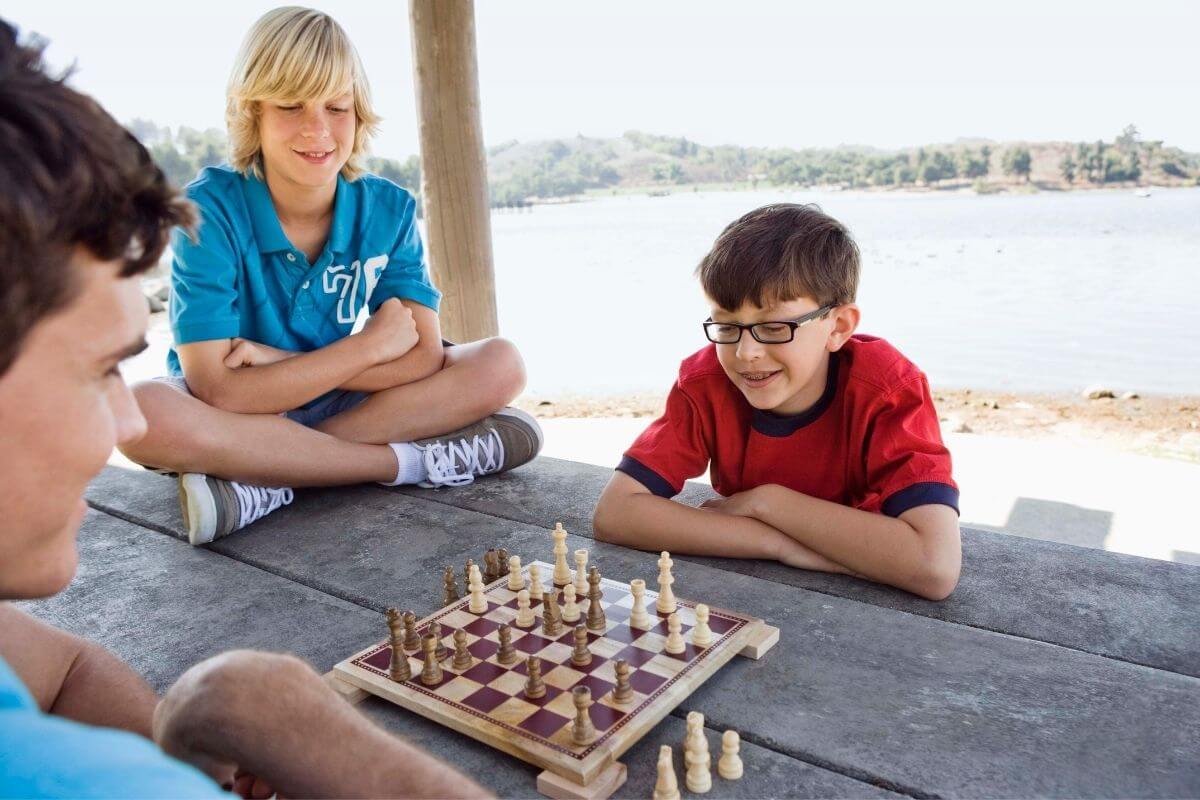
Patient: boy oh boy do you need to be patient. The kids will drive you crazy, but you can’t let them, you must be able to stay calm in all situations. Any aggression – whether verbal or physical – is not welcome at camp, and you will get fired.
Diurnal and nocturnal: basically you need to be able to stay awake for at least 17 very active hours a day. Time off is rare and you don’t want to miss out on anything. If you find it hard to get up in the mornings, you’re going to need to have a strong word with yourself.
Easygoing: you need to be able to go with the flow. Anyone who likes to indulge in a grande latte at 8:27am, partake in a spot of yoga at 10:30am and take lunch in the drawing room at 12:34pm will not do well at camp. You need to adapt to the camp’s way of life, learn to get on with your counselors and adjust at a moment’s notice.
Friendly: the kids need to know you’re approachable, the parents need to trust you enough to leave their kids with you and the other counselors will want to be your friend, so make sure you have your best friendly front on at all times.
Hardworking: possibly even more than hardworking – assiduous, diligent and tireless. Working out in the sun all day after a hard night’s partying will test anyone’s work ethic, but you can’t skive off for a sleep in this job.
Quick-thinking: you need to be prepared for anything. A child could have a fit, two kids could be tearing each other apart, some kid might fancy you – you need to know how to react in all these situations, and worse. Your mind should be agile so you know what to do immediately in any predicament.

Confident: you will be asked to do some ridiculous things at camp – get on stage and pretend to be a crocodile, join in the staff show, get the kids dancing – you need to do it straight away and not feel self-conscious or silly. That’s what you’re there for.
Astute: you should be in tune with your kids. Sometimes you need to do the guess work that something is wrong with them before they actually tell you. You need to be aware of their moods and act on anything out of the ordinary. Kids get homesick/bullied/sad – you need to notice if it’s happening to any of your kids and do something about it.
Inspirational: no matter what you’re teaching at camp, or even if you’re a general counselor, you need to inspire the children. You should be a role model and someone they aspire to be like. I definitely regret some of the things I did at camp in front of the children – you need to remember you’re with kids and sometimes that can be hard when they seem so much older. Act as you would want your child’s (if you had one) counselor to be and you’ll do well.
This is definitely not a definitive list, as a camp counselor you will draw on skills and attributes you never knew you had, but just to give you a heads up on a few of them!
If you fulfil all those requirements, then here’s the process of getting to camp with Camp America laid out plainly in 30 steps!
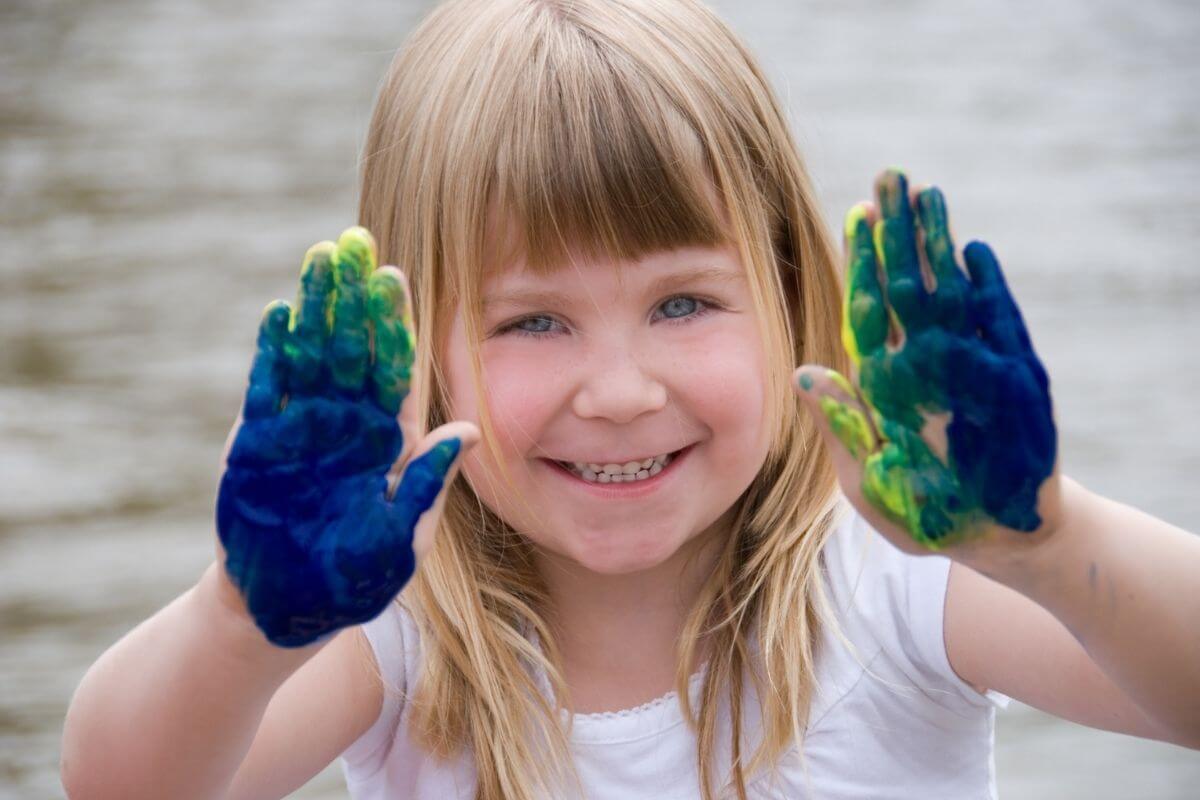
Quick guide to getting a job at summer camp
- Decide which company you want to go with
- Go to an information evening (optional)
- Fill in the My Camp America application form by:
- – Deciding on the skills you want to use
- – Uploading photos
- – Making a video
- – Completing all personal details
- – Deciding which kind of camp you want to work on
- Pay the fee
- Organise an interview (or go to the Camp Counselor Recruitment Fairs)
- Sort medical disclosure
- Get two references
- Send off for your CRB check
- Go to interview with medical disclosure and references
- Fill in the Post Interview Application section on My Camp America
- Pay the second deposit within 14 days of interview
- Sit back and relax while your application circulates round 1000s of camps
- Check your My Camp America for application updates
- Get hired
- Pay the remaining money for medical insurance and departure fees within 30 days of placement
- Gather as much info about your camp as possible
- Go to an orientation in the UK
- Attend your visa interview at the American Embassy in London
- Pack your bags
- Get to the airport
- Don’t miss your flight
- Go to an overnight orientation in the US
- Get the bus to camp
- Have the best summer ever!
And that’s it!
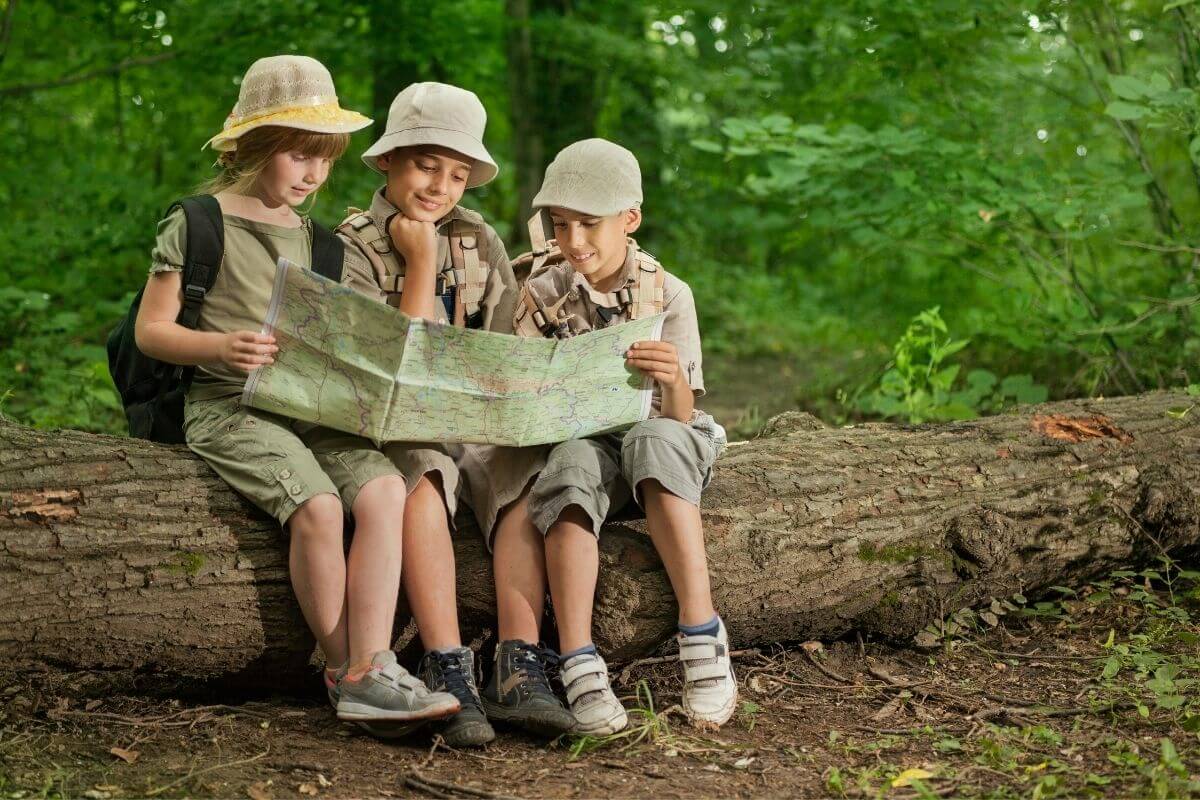
You can start applying for the following year from March the previous year, and they accept applications until the March before the summer you want to go.
Get your applications in early to get the best chance of attending a camp you want teaching the skill you like.
Good luck!
20 reasons to go to camp in America
Should you go to camp in America, or should you stay? If you’re undecided about being a camp counselor next year, take note of these 20 reasons why you should go and then try and come up with a good one why not, I challenge you…
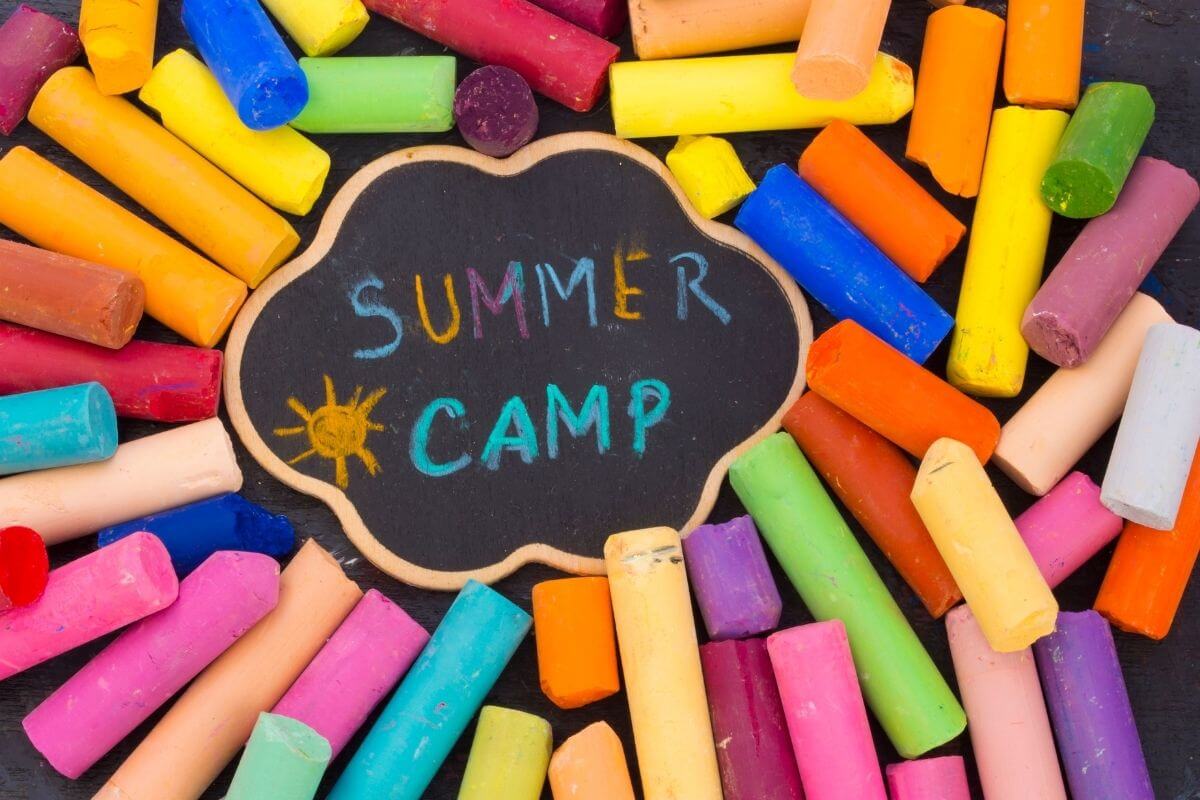
- New experience
- Make lifetime friends from around the world
- You’ll learn new skills you can use in the future
- Really get to know another culture
- Looks amazing on your CV
- You get paid to have fun
- Use your talents
- Share your knowledge with some brilliant children
- Have kids respect and love you
- Get to try out all the other departments at camp
- It’s a cheap way to explore the US
- You don’t have to stay at home and get a boring office/bar job
- Get to travel after camp
- You’ll get to show off about it for years to come
- Get to be outside all day
- Face new exciting challenges
- Learn about yourself
- Live a completely different life to what you’re used to
- Get free food and drink for nine weeks
- You never know who you’ll meet along the way
The worst things about working at summer camp
It’s not all love, fun and roses, the worst things about being a camp counselor can be pretty bad. So I’ve told you the good news, now let’s have a quick gander at the negatives about being a camp counselor shall we…
- No privacy.
- No space.
- Can’t do what you want.
- Have to eat whatever food you’re given.
- You don’t know what’s happening in the outside world.
- Might have to work with people you don’t like.
- The kids can be little shits.
- You can’t talk to your home friends whenever you want.
- If you don’t like it, you’re stuck.
- Skanky showers.
- Going to the toilet with just a thin piece of wood to protect you.
- Living with kids.
- You don’t get a moment’s peace.
- You can’t predict at thing, as you’ll see if you read my book.
- You work so, so hard.
- Limited access to the internet.
- Have to wake up early.
- Have to cope with kids when you’re hungover.
- You can’t just leave if you don’t like it.
- Bunk beds.
Don’t dwell on this though…
I just want you to have all the facts and to be totally prepared before you head off for the summer!
5 steps to cleaning up your online profiles
If you want a job as a camp counselor, your online credentials will be checked.
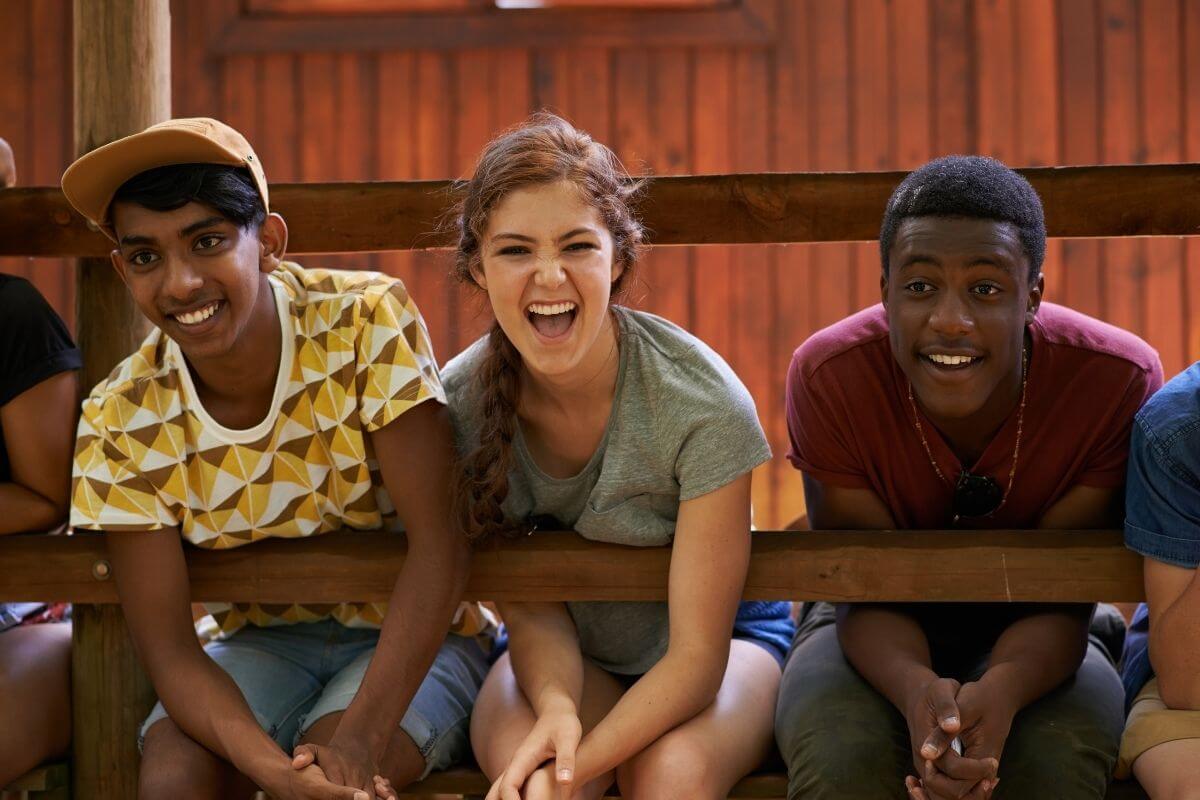
- Make sure your privacy settings are as high as they’ll go.
- Have a nice, smiling profile picture, as in delete that one of you skulling back a giraffe of lager.
- Check your profiles and make sure they’re PG rated, or U preferably.
- Before accepting new camp friends think about the fact that your new employer, the kids or their parents will without a doubt try and find you online before, during and after camp and adjust what they can see accordingly.
- Go through your social media timelines with a fine tooth comb and delete anything anyone could find offensive. Also google yourself to check what comes up: make sure you check the image section too!
After camp think carefully about agreeing to be friends with campers and counselors. Do you really want them to see everything you get up to, especially if you’re planning on going back the following year?
Remember that in this social media world someone will always be watching you…
Packing list for working at summer camp
There isn’t much space at camp so the less stuff you take, the better. It’s also good to keep things minimal for all your travelling after summer camp, I had a huge suitcase and it was an absolute nightmare to carry around. Having said that, you don’t want to run short either. You won’t have regular access to a washing machine and it’s not like you can get mum to wash and iron your favourite top for the next day.
My number one tip is: don’t take anything you don’t want ruined.
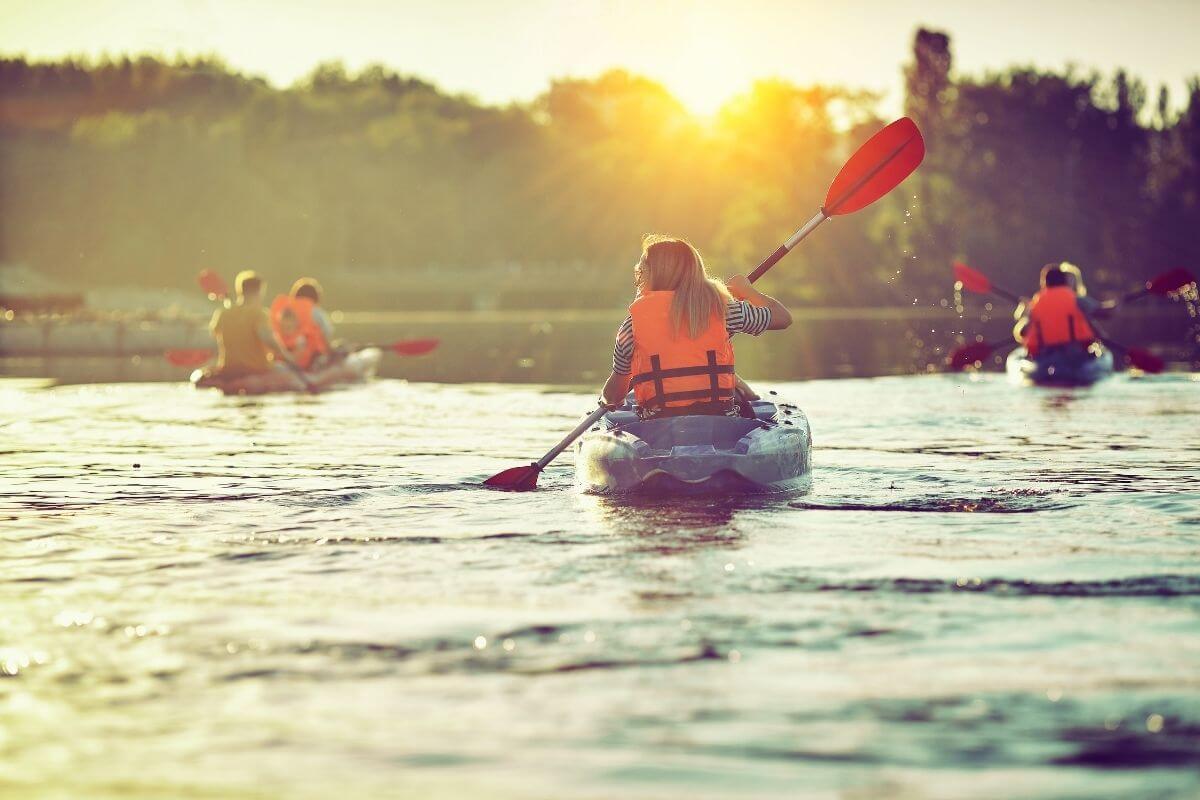
Camp is a dirty, messy and busy place. It’s not the time for flashing designer labels or expensive items. You don’t want to be worrying about your Gucci jeans in the camp wash or your iPad in your bunk while you’re out teaching for the day.
So here’s my list of bare essentials that every camp counselor should take to camp, and a few possible extras at the end.
Lots of undercrackers: you don’t want to be without.
Swimming stuff: one pieces and shorts preferably. No sexy kinis or Speedos – it’s not the time.
Trainers: depends what your teaching whether you want Converse or Nike I guess.
Hoody: definitely. As you’ll read in my book, the nights can get cold in the US and if you’re pulled out for midnight meetings you’ll want something cosy to wear.
Shampoo/conditioner/shower gel/hairbrush: all the cleaning products you’ll need. You never know when your next opportunity to get out of camp will be.
Two towels: one for the lake and pool, and one for the shower. At my camp they gave us one when we arrived – you should check before to save on luggage space.
Full length trousers: there’s some nasty bugs out there at night.
Shorts: few pairs should do it. Don’t make them to short, no one wants to see your bum no matter how pert it is.
Socks: you’ll probably live in flip flops, but there’s nothing like pulling on a fresh pair of socks on a cold night.
Flip flops: see above.
Tshirts: a range of colours should do it. Don’t bring any new or sentimental ones though. Prepare to have them ruined by crafts and sports.
Strappy tops and wifebeaters: you want to make the most of the sun, surely?
A ‘nice’ outfit: there will usually be a ball, or end of summer party, or ‘getting to know your colleagues’ night where you might want to wear something a bit more special.
Pyjamas: no naked sleeps please.
Sleeping bag: maybe, depends on your camp. I ended up buying one from Walmart because they just gave me a crappy sheet.
iPod dock: Hmmm, depends on you. I ended up buying an alarm clock/cd player from Walmart for cheap just so we had a bit of music in the mornings. Remember, don’t take anything you’re not prepared to lose.
Makeup: you might want it for the evenings, I didn’t bother.
Cadbury’s chocolate and magazines: this will ensure your popularity immediately.
Stuff for Independence Day: my mum ended up sending me a tshirt with the UK flag and some boxer shorts. At my camp everyone dressed up for Independence Day, but check first.
Raincoat: the rains in the USA are amazing! I didn’t have one and was alright, but it might’ve been nice.
Think that’s it for the essentials. Of course you can add your own flair to the list, but don’t leave home with the above as standard.
Questions about working at summer camp

1. What time do I have to wake up?
Whichever way you look at it: EARLY. Sometime between 7 and 8 most probably, and you better be cheery about it too.
2. What are the kids really like?
Imagine yourself at 8 years old, 10 years old, 13 years old, what were you like? What was the most annoying person in your class like? And the dorkiest, and the prettiest, and the most screwed up? Well you will encounter all of them and everything in between.
3. What do I do on nights off?
This also depends immensely on the camp. On both camps I’ve been to you could go out drinking with the other counselors at night, so long as you were back in time to get the kids up for breakfast in the morning. I know the camp agencies won’t like me telling you this, but from my experience and from what I’ve heard from friends at other camps the nighttime drinking culture is one of the best things about camp and nearly all of them will have something. If you want to hear about the night time activities in more depth, read Secret Diary of a Camp Counselor.
4. What if I don’t like working at camp?
If you don’t like it you have three options.
- Grin and bare it.
- Leave and don’t get paid and you’ll probably have to pay your own flight home.
- Intentionally break your leg or other body part so you can get flown home on the medical insurance.
5. How do I get paid?
It depends on your camp. At my first camp I got a little sub about two weeks before the end – around £200 – and then the rest on the last day in cash. At the camp I went to in my second year we all got paid in cash on the final day. Some camps will pay every two weeks, it really depends.
6. What do I eat?
Chicken wings, perogis, bagels, and lots of other highly calorific, sugary concoctions. Judging from my two years at camp, there is no way you will be able to eat healthily at camp.
7. What if I don’t make any friends?
I can guarantee this isn’t something to worry about. Even if you’re the weirdest person ever you will meet your kindred spirit at camp. The camp agencies knew what they were doing when they hired you and so did the Camp Directors.
8. How much time do I get off in the day?
Again, this depends on your camp. I got an hour off a day and then we had rest hour where we just had to chill with the kids. In my second camp I had loads of time every day because I was Evening Activities Coordinator. Depends how hard the Camp Directors want to flog you.
9. Will I enjoy summer camp?
As you’ll read in my book, there were times that I hated camp, but there were more times that I loved it. Camp is a rollercoaster there’s no doubt about it – but it will also be the best summer of your life.
10. What do I need to take with me?
Take a few photos – they’re good for decorating around your bunk and can be a good conversation starter with your fellow counselors and the kids. Obviously check what you’re up to on them before you go plastering them on the walls. Take clothes that you don’t mind ruining. Your camera and a few UK flag-emblazoned items for Independence Day – the camps go crazy.
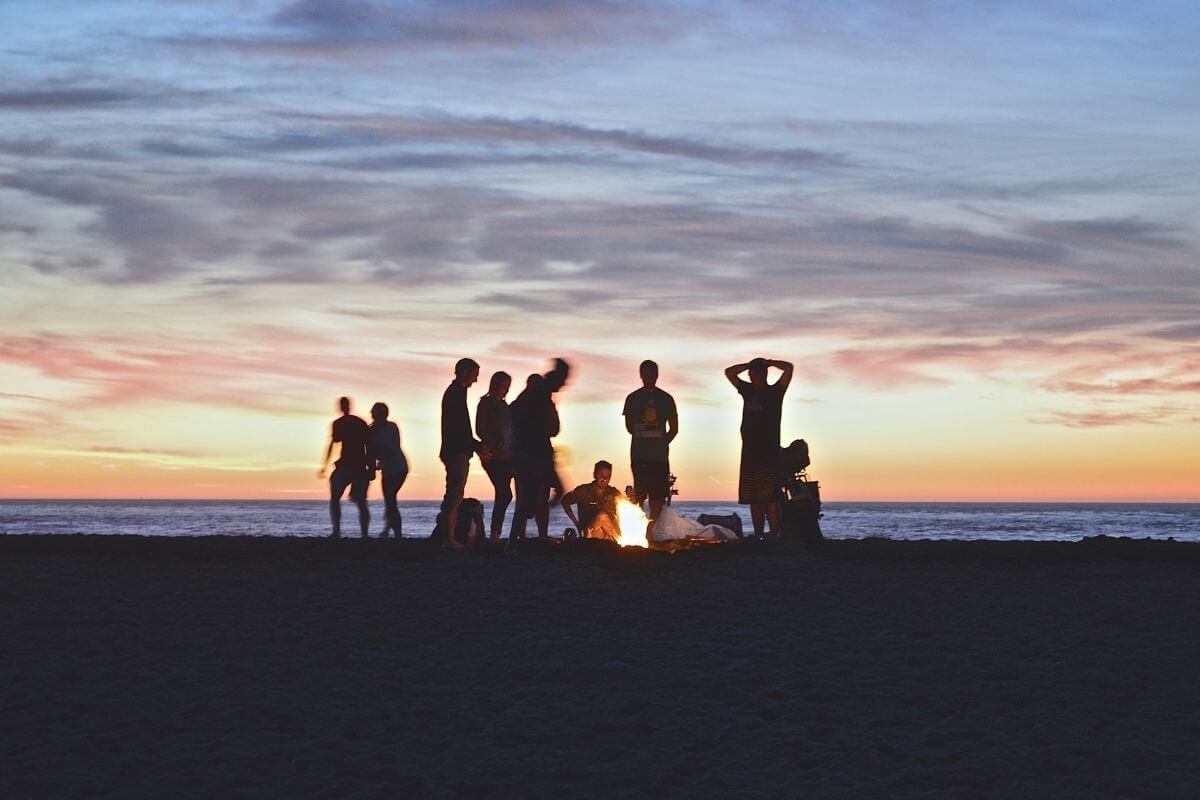
100 reasons to apply to summer camp
If you’re sat at home wondering whether to click ‘submit’ on that application or not, or even whether to start it, here are 100 reasons why you need to apply for summer camp.
- It’s a cheap way to spend 12 weeks in the USA
- Free food!
- Free accommodation
- Flights are included
- Apply, get in, and everything is sorted for you from start to finish
- You get days off to explore the surrounding area
- You’ll meet people from all over the world
- It’s relatively safe compared to other travels
- You’ll instantly make friends as all the other counselors will be in the same boat
- You’ll get to try activities you’ve never done before
- You get to travel the USA afterwards
- You’ll make some American friends – perfect for after-camp travels
- You’ll make friends for life, dotted all around the world
- I guarantee you’ll see the world in a different light once the summer is done
- You get to teach your passion all day long
- You get to be outside all day, if you wish
- You can write about your camp experience.
- You can improve your CV with the skills you’ve learned and refined at summer camp
- All the more reason to read my book Secret Diary of a Camp Counselor
- You get to make a cool video in your application
- You never know what you’ll learn
- Or who you’ll meet
- You get to practice your interview skills
- You might meet the love of your life – 12 weeks with the same bunch of people definitely causes some hook ups
- You get to check out your fellow camp counselors in their Speedos/Bikinis
- It’s always good to push yourself out of your comfort zone
- It’s a million times better than working some temp job for the summer
- You get paid for it
- You also get tips
- You can practice your friend-making skills in time for university / work
- You can get placed with your best friend
- Keeping up with the kids is a great way to keep fit
- You never know what skills you’ll unearth over the summer
- You can understand another culture
- You can practice getting up early (eugh!)
- You’ll actually live in the set of Glee / Camp Rock for a few months
- You’ll have material for fun and interesting stories for years to come
- You’ll do something different every day
- It’s a fast track course on how to get along with kids
- It should put you off having your own children for a while, meaning all the more freedom for a few more years!
- If you want to have a summer off alcohol you can choose a camp that’ll facilitate that…
- If you want to spend the summer partying by night and counseling by day, that’s possible too!
- You will definitely return a more confident person – summer camp gives you confidence!
- You can easily do camp on a budget – it’s great for school leavers before going to university, or whatever it is you fancy doing.
- You’ll learn how to deal with naughty kids
- You’ll have some of the best and worst times of your life.
- I guarantee in some way, it’ll change your life
- You can go travelling after camp
- You get to act like a kid all day long
- You could carry out the Baywatch dream and work as a lifeguard for the summer
- Working at camp is a great way to test the water of a potential future career – for example, if you fancy being a teacher you can find out if you actually like kids for starters.
- The kids change over every few weeks so you’ll get to teach many different ages and types of children.
- Say a sad goodbye to your favourites and a happy good riddance to the worst.
- You get to eat a lot of pizza, ice cream and chicken wings
- In general the atmosphere at camp is awesome
- You get to put off being an adult for a litte bit longer
- You’ll meet likeminded people
- You can practice your coaching techniques
- It looks awesome on your CV for the future
- If you’re American you can gain college credit too
- You’ll learn great leadership skills, very quickly
- You will laugh, a lot. Being silly is all part of the job.
- You’ll naturally bond with the other staff quickly – after a week it’ll feel like you’ve known them for years.
- You’ll be a part of many kids’ childhood – some of them will remember you forever
- Some kids look forward to the summer for the whole year – you’ll be a part of the reason they want to go back
- You can get away from everything you know for a few months
- More than a million other people have done it – and loved it
- Working at a summer camp will help you to learn how to interact with kids and understand their behaviour and personalities.
- You’ll have so many experiences you’ll never have problems with those ‘Tell me about a time when…’ interview questions ever again
- You’ll learn new skills – counselors will usually have an hour off a day where they can go around camp and try something new
- You’ll never know the impact you could have on a child, just by being there when they needed you
- You’ll make tens of new friends
- Nothing can beat the feeling of when a child really trusts you and confides in you
- It’s a chance to be respected and loved by tens of children every day
- Working at camp can be a massive ego boost
- It’s a chance to be active all day; not sitting at a computer or in a classroom
- The everlasting memories
- It’s a chance for you to be independent
- An opportunity for you to be who you want to be, away from anyone who knows you
- You’ll get to flex your problem solving skills – there’ll be plenty of them, don’t you worry
- Your organisational skills will also be tested – try getting ten 13-year-old girls to breakfast at 8am and you’ll see what I’m talking about.
- Public Speaking: Develop your confidence in teaching and presentation with a forgiving audience who will look up to you no matter what.
- Responsibility: Caring for a group of children shows that you are trustworthy, hard working and motivated.
- Collaborative Process: Learning to work collaboratively is more than teamwork; it is being an active part of a decision made for the betterment of the community. Learning to evaluate the whole group’s needs and working together to achieve a selfless product.
- Supervisory Skills: Whether you are a counselor or Leadership Team member, you will have the experience of positively motivating individuals to work together to achieve a common goal.
- Work as a listener and as a counselor in the more traditional way – it can be hard for the kids to be away from their parents
- You’ll create a significant and positive impact on the young lives of your campers
- You’re likely to have a swimming pool, or even a river to play in onsite
- Hands on experience with over 100 different species of animals
- It’s a chance to be remembered forever by a fantastic group of campers that you’ll never forget
- An opportunity to get away from the entrapping of the internet and social media – give it a break!
- It’s a great chance to get a reference for a future job
- You’ll practice teamwork
- It teaches patience
- You’ll gain hands on experience of camp
- You’ll have a meaningful job, rather than just filing tax returns or whatever it is your school friends are doing
- To do something different for a summer
- You’ll inspire kids
- You’ll spend days and nights nurturing, teaching, organising, comforting and inspiring young people.
- This is your big chance to do something important – help that child who’s struggling with depression, anorexia, their sexuality, or any of the myriad of things that come up.

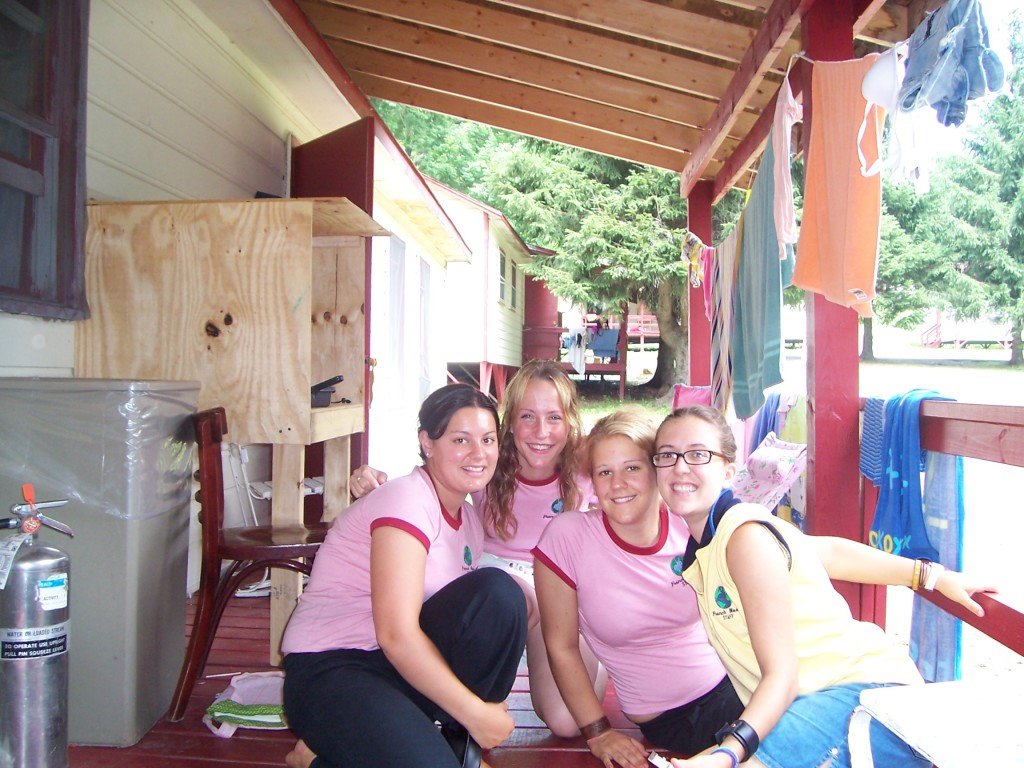
This blog is awesome! I want to do everything you have done!
Im going to French Woods in 3 weeks and cannot wait!
xXx
Ahhh how EXCITING! I loved it. Best travel experience ever. Enjoy every moment Rebecca!
I’ve just finished my second summer at a camp in Michigan and no doubt it is one of the greatest ways to spend a summer. Getting paid to act like your ten is always a winner.
Those are some very convincing reasons to do it! I love volunteer placements that don’t cost an arm and a leg and where you can actually make a difference. Good on you for doing this!